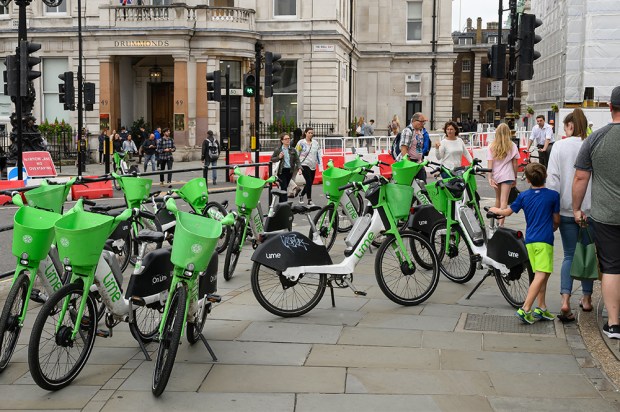This is National Vandalism Week, and I have been celebrating it in style. First stop – the London Coliseum for the opening night of English National Opera’s inspiring new production of The Rhinegold. The Arts Council says that the ENO is ‘one of the most dynamic and imaginative organisations working in the country’. One can believe it, listening to the orchestra on top form playing Wagner’s spellbinding score. You would never guess that the Arts Council has condemned the company to death. As vandalism goes, this is quite something. The Council has decreed that, in return for a grant significantly less than its current level, ENO must move its base out of London by next year, doing no more than a short season at its home in St Martin’s Lane. This will involve giving redundancy notices to the entire orchestra and chorus who are its heart and soul. ENO will no longer be a company. It will become a mere brand name, performing with scratch orchestras and choruses to much smaller audiences for short seasons.
The Arts Council’s response, per its chief executive Darren Henley, is that the future lies with ‘opera in car parks, opera in pubs, opera on your tablet’. Apparently this is what ‘levelling up’ means. The provinces can make do with pale imitations of the real thing, while opera in London is available only to the well-heeled who can afford the prices at the Royal Opera House.
Then to the British Museum, where there are persistent rumours of a deal to ‘lend’ the Parthenon sculptures (the ‘Elgin Marbles’) to Greece. Everyone knows that it will be a loan in name only. While the sculptures remain in England, they are protected by a statute which provides for them to be vested in the British Museum in perpetuity. Once they leave, their fate will depend on the law of the place where they are located. The Greek government claims the sculptures as its own and will refuse to return them. Britain will be powerless. These are the British Museum’s greatest treasures. If they were going back on the Parthenon building, there might be something to be said for it. But for conservation reasons they would simply go into a museum in Athens. The cultural case for that is as weak as the legal case. The Parthenon sculptures were neglected or vandalised in Athens for centuries before Lord Elgin removed them to England. They have been far better preserved here than the three sadly deteriorated panels which stayed in Athens.
As it stands, the Parthenon sculptures can be seen for free in one of the most visited cities of the world. They have been in Britain for longer than the Greek state has existed. By now they are as much part of our heritage as that of any other country. But in reality they are part of the heritage of all mankind. Museums such as the British Museum are world institutions. The British Museum is perhaps the greatest of them all. The logic which would break up its collections and send them to their places of origin would also apply to the sculptures of Bassae from Greece, the monuments of Nineveh from Iraq, the Rosetta Stone and the Nebamun paintings from Egypt and many other treasures. On this principle, the antiquities departments of the Louvre in Paris, the Pergamon Museum in Berlin and the Metropolitan Museum in New York would all be decimated. They are different from the British Museum in one respect only. They do not suffer from the cringing self-abasement which has gripped the museum establishment in Britain. They have the pride in their past to defend their collections and the self-confidence to stand up for the interests of the public that they serve.
Interesting to see that a group of scientists from Leeds propose a return to wartime rationing as an answer to climate change. The government, they argue, should create artificial shortages by limiting imports of fuel and food and then rationing them to ensure an equitable distribution. I am no climate change denier. We need to do something radical about it. Still, I cannot help noticing that when faced with a threat from the natural world, such as global warming or Covid-19, activists instinctively resort to a sort of moral puritanism. The answer is always to tighten our belts, put on our hair shirts and mortify our flesh. This is really a quasi-religious quest for the moral improvement of humanity by making it consume less. There is a precedent for it. Faced with the Black Death, medieval townsmen were urged to march in procession around their walls, fasting, singing hymns and flagellating themselves. It worked quite as well as lockdowns.
Got something to add? Join the discussion and comment below.
Get 10 issues for just $10
Subscribe to The Spectator Australia today for the next 10 magazine issues, plus full online access, for just $10.
You might disagree with half of it, but you’ll enjoy reading all of it. Try your first month for free, then just $2 a week for the remainder of your first year.














Comments
Don't miss out
Join the conversation with other Spectator Australia readers. Subscribe to leave a comment.
SUBSCRIBEAlready a subscriber? Log in